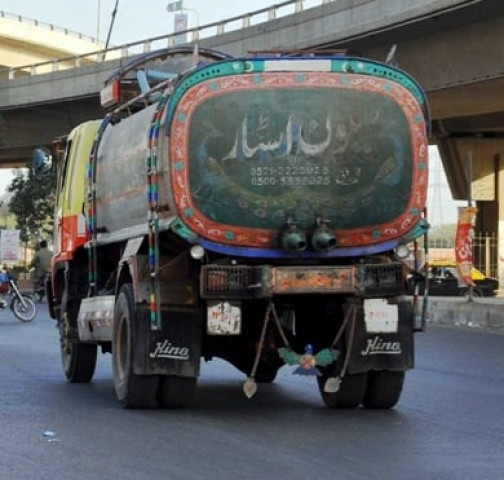Be warned: ‘The next warfront over water crisis is Karachi’
Out of three treatment plants, one is out of order while other two treat 30% of water.

“The requirement of water in future is 1020 MGD per day but government functionaries did not take any step to fulfill this." PHOTO: FILE
This was observed during a seminar at Bahria University auditorium held under the title of Water and Energy on Tuesday. The former managing director of Karachi Water and Sewerage Board (KWSB) and present director of K-4 project, Misbahuddin Farid, deputy managing director Naeem Qurashi and a large number of students and professors were among the participants at the seminar.
“Communal riots in Karachi are witnessed over different issues such as land grabbing, language-based issues and economic disputes, however, the future of conflicts depends on water,” warned Farid. “The requirement of water in future is 1020 MGD per day but government functionaries did not take any step to fulfill this,” he pointed out.
During the seminar, most of the discussions revolved around the consequences that Karachi and Pakistan will have to face over access to clean and safe drinking water in the future.
Ramzan Ali, a student of environmental science at Karachi University, expressed a different viewpoint with the help of charts and noted that 472 million gallons per day has been wasted due to inefficient treatment plants.
“Three treatment plants were established by the government, one is currently out of order while another only treats 30 per cent of water,” he added.
He further added that currently the city is facing a 260 million-gallon shortage of water. “If the government completes the K-4 project and reestablishes water treatment plants and breaks the cartel of illegal water tanker mafia, the water crisis can be controlled,” he said.
Another student, Athar Ali, pointed out that vast expansion of illegal settlements, mismanagement, and lack of interest among government functionaries in the city can be the reason behind acute shortage of water in the future.
“Karachi is the city of industries and industrialists must install treatment plants individually in their industries for the sake of better future of Karachi,” he concluded.
Published in The Express Tribune, March 26th, 2014.


















COMMENTS
Comments are moderated and generally will be posted if they are on-topic and not abusive.
For more information, please see our Comments FAQ